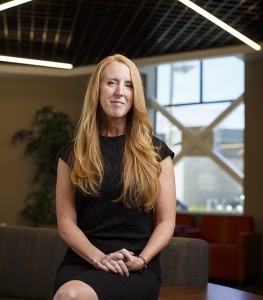CSUN Prof to Explore the Acquisition of Technology in California Schools

Kristen Walker
School districts across the country increasingly rely on information technology — whether it’s YouTube videos or educational software and apps — as part of their lesson plans.
California State University, Northridge marketing professor Kristen Walker has received a $230,960 grant from the National Science Foundation to explore how technology is acquired by school districts in California, which will inform the extent technology is used in K-12 school districts, and what price students, their teachers and their family members pay when it comes to their privacy.
“Technology can be a great tool for teachers when they are trying to get their students to understand processes and concepts,” said Walker, who teaches in CSUN’s David Nazarian College of Business and Economics. “But at the same time, there are a lot of questions about what happens to students’ data when they use that technology. Does the company share the information they’ve collected? What happens if someone else — a parent, a teacher, a sibling, another student — uses the same device the student used? Is there a cookie that will collect that person’s data as well?
“There are a lot of questions that we don’t have the answers to,” she said. “I am hoping that my research will lay the foundation for some serious conversations we as parents and educators should be having as information technology becomes an increasingly routine component of the educational experience.”
Walker’s study builds on research she has done over the past decade on the pervasive collection, storage and use of children’s personal information for marketing activities, as well as efforts to educate children on how to protect their privacy online. Three years ago, she and a colleague, fellow CSUN marketing professor Tina Kiesler, launched a campaign — The Youth-Driven Information Privacy Education Campaign (YDIPEC), funded with a grant from the Digital Trust Foundation — to help young people and their parents learn how to safeguard their privacy online.
As part of the NSF-funded study, Walker said she plans to explore the educational technology procurement strategies and process at K-12 schools, and the marketing efforts involved.
“We need to start thinking about how the technology ends up in the classroom,” she said. “Is it something the school district procured, and district officials reviewed the privacy safeguards? Did they buy the software or app, unaware that the company may be ‘sharing’ the data it collects? Or was it something, say a YouTube video, that a teacher or a group of teachers felt would be a great complement to their lesson plans, without realizing that just a couple clicks by their students could lead those students to inappropriate websites, or that YouTube would be collecting data from their students while they visited the site?”
Walker said the grant allows her to explore the long-term costs of using technology in the classroom, “and how we, as educators and parents, can be more proactive in protecting the privacy of our students and children.”

 experience
experience